Featured News, Market News, News & Event
HOW DO OCHAO RICE STRAWS HELP REDUCE MICROPLASTIC INTAKE?
Plastic products, though convenient, pose hidden risks of passive microplastic absorption. Replacing plastic straws with rice straws can help reduce the intake of microplastics into the body. So how do OCHAO rice straws help Vietnamese consumers minimize microplastic absorption?
What are microplastics?
Microplastics are tiny plastic particles measuring less than five millimeters in length. They originate from various sources — larger plastic pieces breaking down, the natural degradation of plastics in the environment, and even certain toothpastes or cosmetic products. Some microplastics exist in an even smaller form called nanoplastics (less than 1,000 nanometers), which can easily penetrate cells and tissues, posing potential harm to the human body.
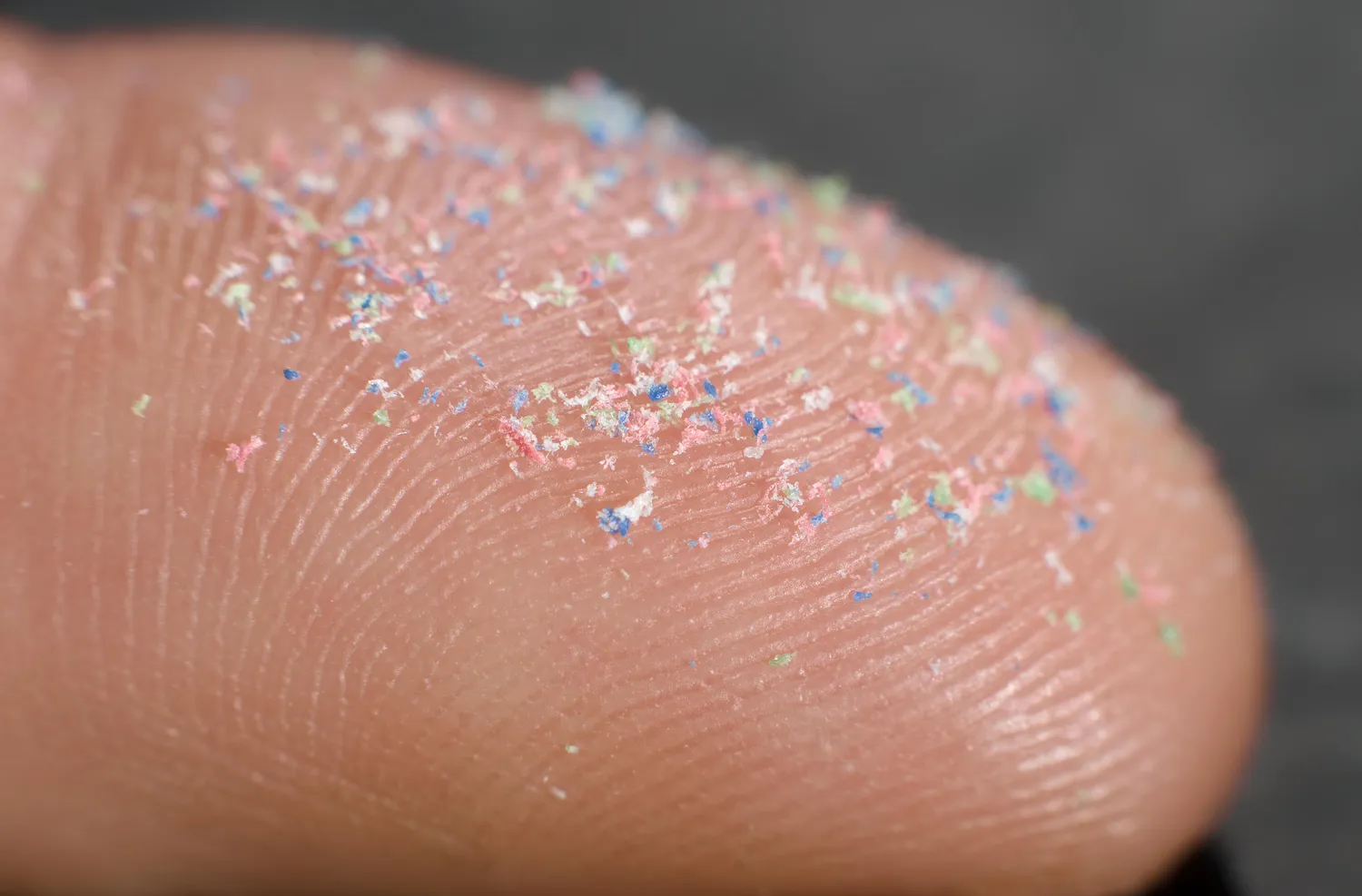
The Impact of Microplastics on the Environment
Plastic waste in nature gradually breaks down, releasing microplastics into the soil, water, and even the air. When present in soil, these particles can alter its physical and chemical properties — such as pH levels and nutrient content — ultimately reducing plant growth and crop productivity. A study published in PNAS (The Proceedings of the National Academy of Sciences) revealed that microplastics can also decrease the photosynthetic rate of terrestrial plants, marine algae, and freshwater algae.
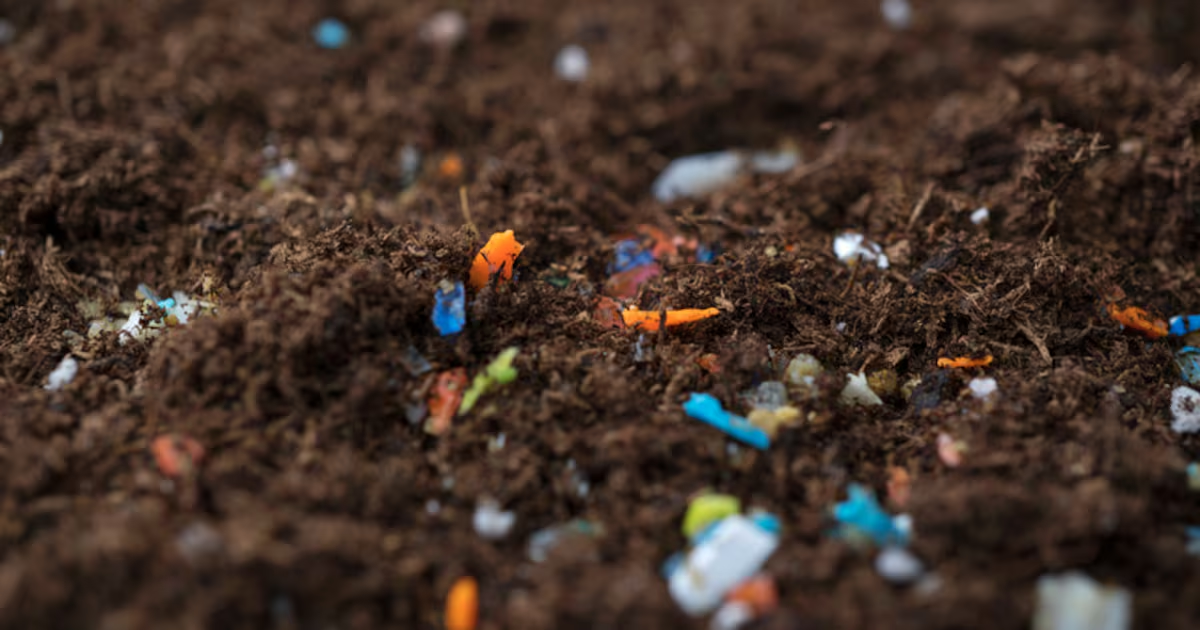
Microplastics also contribute to water and air pollution through the release of plastic particles from everyday items and waste. This indicates that microplastics are threatening not only the environment but also the health of all living organisms — especially humans.
Negative Impacts of Microplastics on Human Health
In addition to their harmful effects on the environment, microplastics also affect human health through several exposure pathways:
- Through the Air
Some microplastics, particularly nanoplastics with extremely small size and light weight, can remain suspended in the air — invisible to the naked eye. Researchers from the University of East Anglia have detected over 25 million tons of microplastics in the atmosphere, water vapor, and fog. These nanoplastics can enter the human body through respiration, penetrate blood cells, accumulate gradually, and potentially harm overall health.
- Through Water Sources
The water we consume daily is another route through which microplastics can infiltrate the body. They are found in nearly all water sources — wastewater, seawater, and even domestic tap water. If nanoplastics are not properly filtered out, they can enter the digestive system and negatively affect human health.
- Through Food Consumption
According to the principle of bioaccumulation in the food chain, humans — being at the top inevitably ingest microplastics accumulated in other organisms. Microplastics from the environment (soil, seawater) enter plants and marine life, which are then consumed by humans. In other words, we absorb microplastics both directly and indirectly, underscoring the importance of reducing plastic waste use.
- Through Plastic Straws
Moreover, single-use plastic products — especially plastic straws — are another source of microplastic intake. When using plastic straws, microplastic particles can leach into beverages and then enter the human body. Over time, these particles accumulate and may cause adverse health effects.
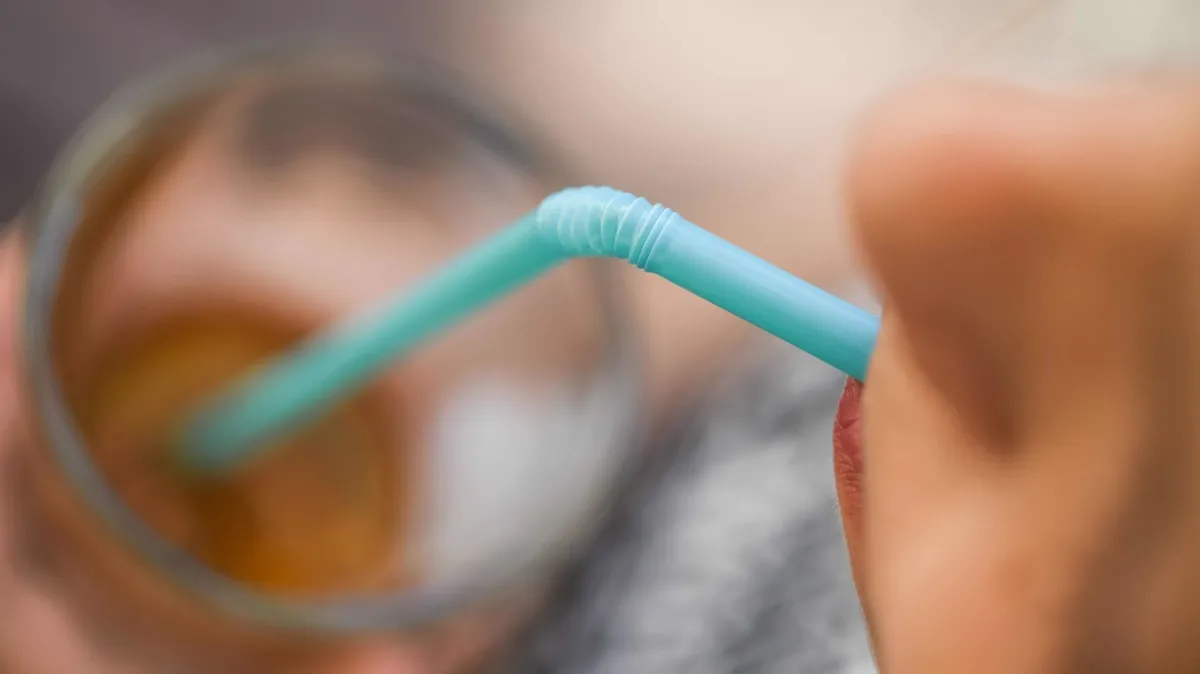
Impact on the Digestive System
In the human digestive system, gut microbiota play a crucial role in promoting digestion, supporting nutrient absorption, and regulating the immune system. The presence of microplastic particles disrupts the growth and metabolism of these beneficial gut bacteria.
Moreover, microplastics can act as carriers for other harmful substances such as heavy metals, pollutants, and pathogens, allowing them to enter the body. This interference can damage the balance of the gut microbiome and weaken immune function.
More seriously, these toxic substances may also affect cellular physiological functions, leading to gene mutations and potentially promoting the formation of cancerous tumors.
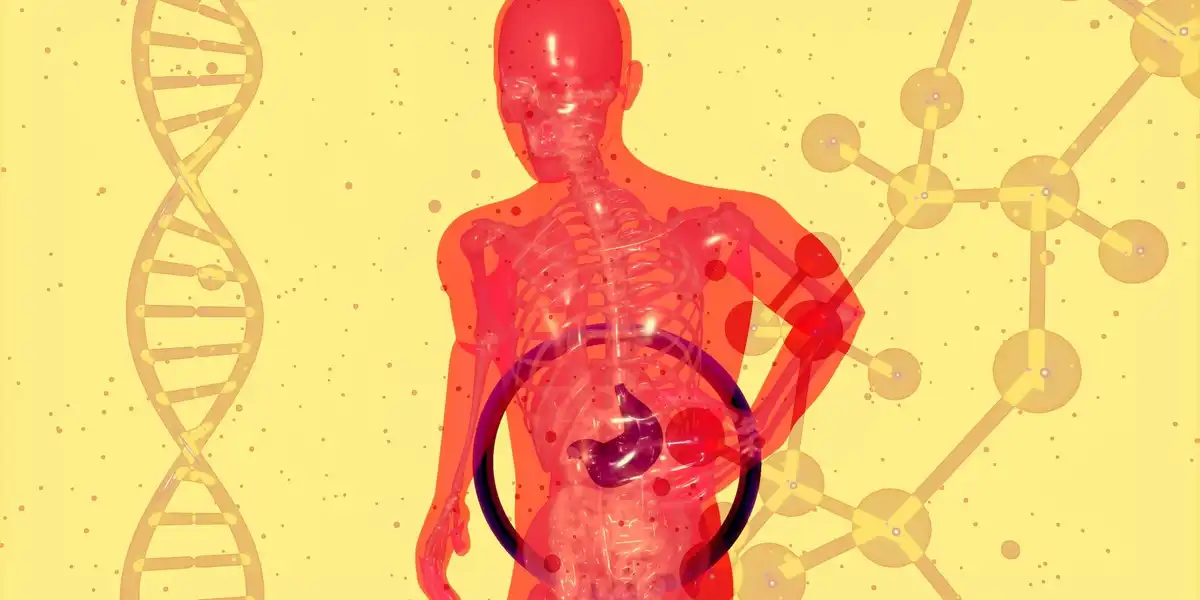
Impact on Nerve Cells
When microplastic particles enter the body, they can penetrate blood vessels and travel to the brain, where they gradually accumulate in the myelin sheaths—the protective coverings of nerve fibers. Over time, this buildup can impair nerve function, leading to visual and motor coordination problems.
Furthermore, a research team led by Dr. Andrew B. West has demonstrated the effects of microplastics on neuronal cells in the brain’s substantia nigra region. This interference disrupts dopamine release, thereby increasing the risk of developing Parkinson’s disease and memory-related disorders.
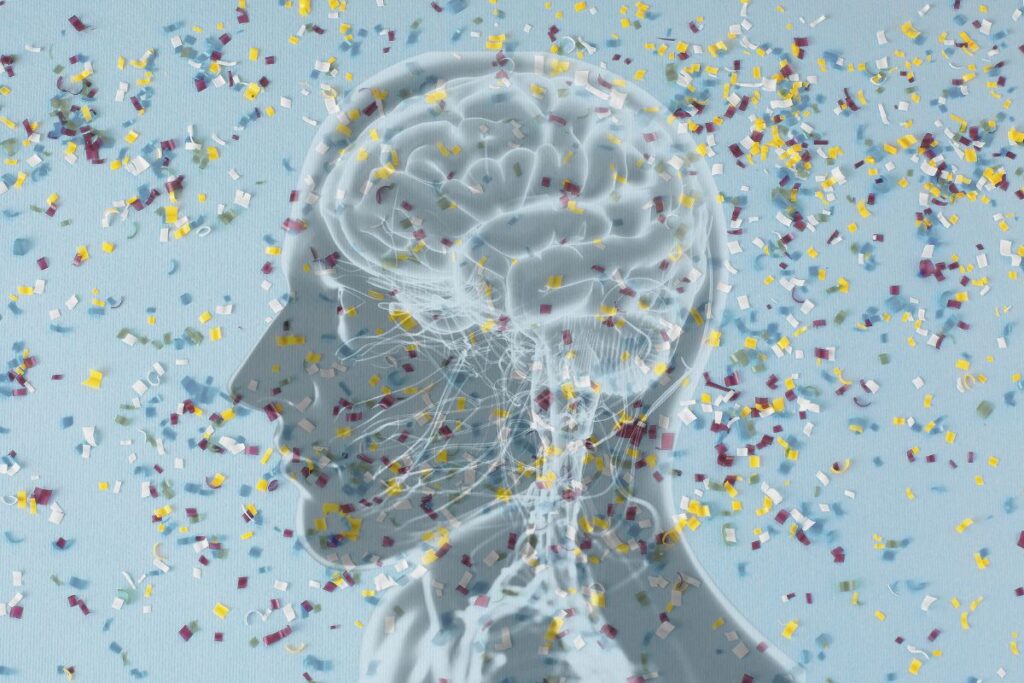
Disruption of Hormone Production in Children
Children are more vulnerable to microplastic exposure because their organs are still developing. Common behaviors such as biting toys, chewing on straws, or putting hands in their mouths increase the likelihood of microplastics entering their bodies. These particles can negatively affect the production of hormones that regulate mood, growth, and metabolism, potentially leading to long-term developmental and health issues.
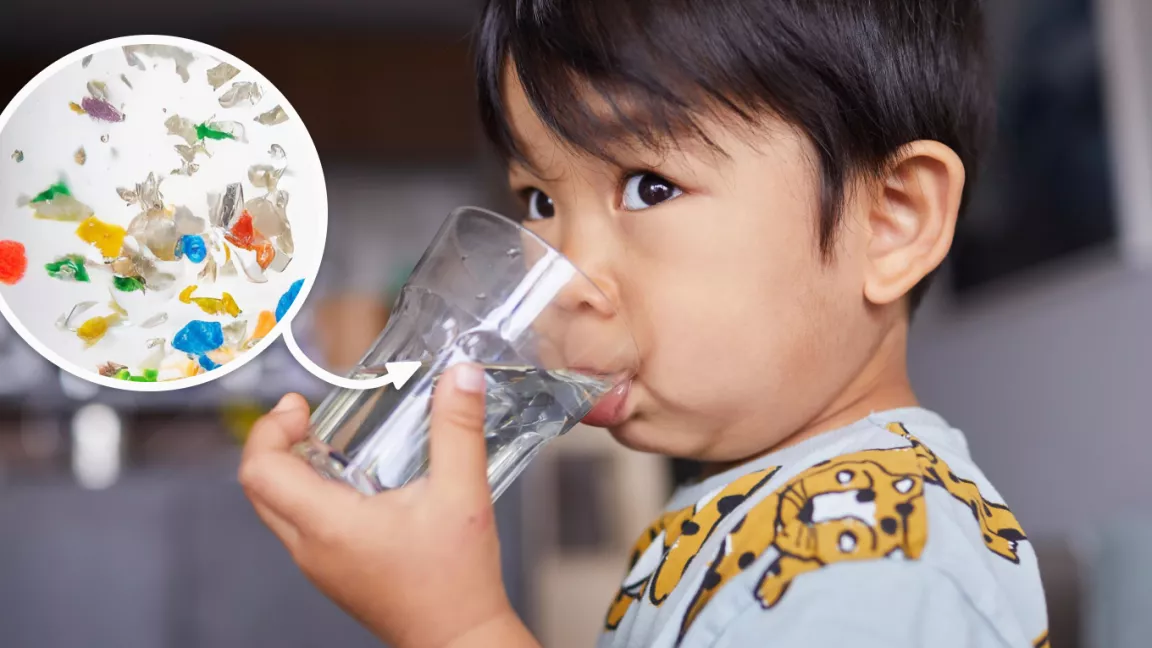
Although microplastics are tiny in size, their accumulation can cause serious harm to both the environment and human health. Therefore, small actions — such as replacing plastic straws with eco-friendly, biodegradable alternatives — can make a meaningful difference.
OCHAO rice straws, made entirely from natural, environmentally friendly ingredients, are an ideal choice for those who wish to embrace a greener and healthier lifestyle.
OCHAO Rice Straws – Protecting Consumers from Harmful Microplastics

OCHAO rice straws are a safe, eco-friendly alternative that’s gentle on your health and kind to the planet. Unlike plastic straws—which take years to decompose and release harmful microplastics into the environment—OCHAO rice straws naturally biodegrade within just 7 days.
By switching to OCHAO rice straws, consumers can enjoy their favorite drinks without worrying about microplastic contamination.
OCHAO rice straws come in various sizes to suit your needs:
- 6.5mm: Ideal for coffee, water, fruit tea, and other light beverages.
- 8mm: Perfect for smoothies or milk tea with small toppings.
- 12mm: Great for milk tea, fruit tea with toppings, and thick smoothies.
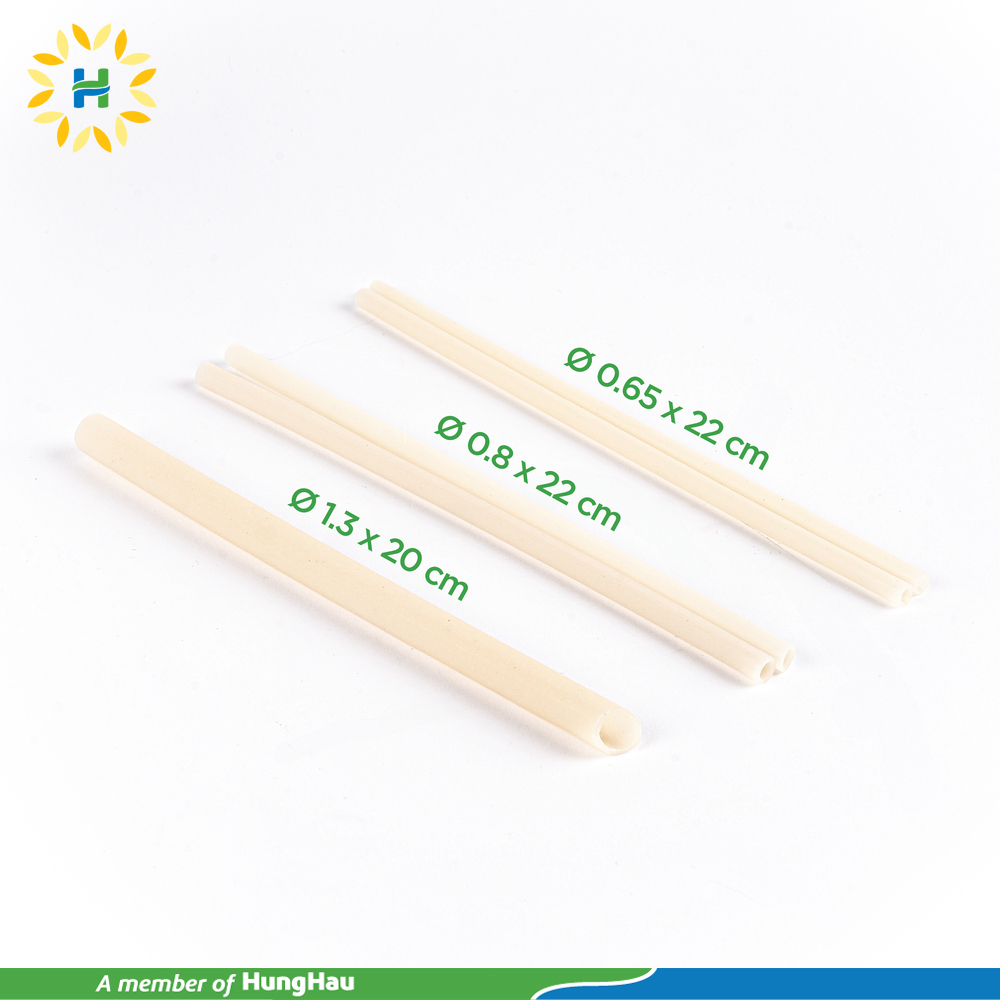
OCHAO Rice Straws – Naturally Made, Inspired by Vietnamese Heritage
OCHAO rice straws are made entirely from natural ingredients 75% rice flour and 24% tapioca starch embodying the essence of Sa Đéc’s traditional rice flour craft, recognized as a National Intangible Cultural Heritage of Vietnam in 2024. Their vibrant colors come from natural vegetable and fruit extracts, making them 100% safe and consumer-friendly.
Proudly recognized as a Vietnam Value for five consecutive years, OCHAO rice straws are the perfect choice for every family seeking a healthier, more sustainable lifestyle. The product is researched and developed by HungHau Foods, a member of HungHau Holdings.
 You can purchase OCHAO rice straws directly via the official website: https://hfoods.vn/product/rice-straws-2/
You can purchase OCHAO rice straws directly via the official website: https://hfoods.vn/product/rice-straws-2/
Explore more articles:
- OCHAO Rice Straws: A “green” business solution for the modern F&B industry
- How to distinguish real vs. fake rice straws? Where to buy high-quality rice straws in Vietnam
- OCHAO Rice Straws Tube achieve Vietnam Value 2024
Contact for Collaboration
HungHau Foods Joint Stock Company
📍 Address: 642 Âu Cơ Street, Ward Bảy Hiền, Ho Chi Minh City, Vietnam
📧 Email: sales@hunghau.vn
📞 Hotline: (+84) 79 721 3333
📧 Email: Anna@hunghau.vn
📞 Hotline: (+84) 96 740 0333
📧 Email: yenn@hunghau.vn
📞 Hotline: (+84) 78 520 3333
🌐 Website: www.hfoods.vn
Purchase HungHau Foods and Happy Noodles Products
🛒 Website: hfoods.vn
🛍️ E-commerce platforms: myu.vn/shop | Shopee: hunghaufood
🏢 Showrooms:
- Address 1: 889 Trường Chinh, Tây Thạnh Ward, Ho Chi Minh City
- Address 2: 727 Đường 3/2, Diên Hồng Ward, Ho Chi Minh City
